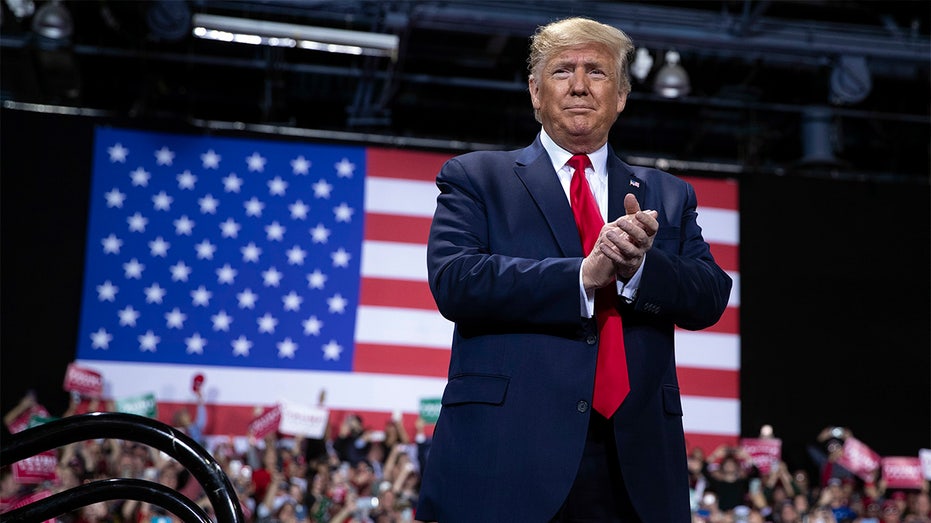A net 68 percent of respondents to Bank of America's Global Fund Manager Survey say 'recession is unlikely in 2020'
Big money managers are expecting the Trump economy to get even hotter in 2020, according to a new investor survey.
A net 29 percent of fund managers questioned by Bank of America expect global growth to improve over the next year, and many are betting on gains in American technology and growth stocks, along with government bonds. The reading was a “big reversal” from the 50 percent who expected growth to weaken in June, and it capped off a two-month gain of 66 percent, according to chief investment strategist Michael Harnett. He added a net 68 percent of respondents say “recession is unlikely in 2020.”
The Charlotte, N.C.-based lender surveyed 199 participants in the U.S., the world's largest economy, and worldwide between Dec. 6 and Dec. 12. The survey was conducted before the U.S. and China reached a partial trade deal and the House of Representatives approved the United States-Mexico-Canada Agreement, the Trump administration's NAFTA overhaul.
US CONSUMER TURNS BLIND EYE TO IMPEACHMENT DRAMA AS CONFIDENCE HITS 7-MONTH HIGH
The U.S. economy grew at a 2.1 percent annualized rate in the third quarter, according to a final estimate released Friday by the Commerce Department, and the two trade agreements reached this month are expected to provide a tailwind in 2020.
The USMCA alone, which the Democratically-controlled House of Representatives passed on Thursday, encompasses more than $1.3 trillion of commerce between the U.S., Mexico and Canada.
The agreement, which is expected to be ratified by the Senate before being signed by President Trump, could add as much as 1.2 percentage points to U.S. economic growth and create as many as 588,900 jobs, according to estimates from the International Trade Commission.
U.S. Trade Representative Robert Lighthizer hailed the USMCA as the “gold standard for digital trade.”

On Dec. 13, the U.S. and China reached a phase one trade deal that deescalates the more than 21-month-long trade war between the world’s two biggest economic powers. As part of the deal, China agreed to buy $200 billion of new U.S. products in the next two years.
The U.S. still has tariffs on about $380 billion of Chinese merchandise as a means of forcing Beijing to negotiate a broader agreement.
“This is about taking the first big step to determine whether or not two different systems can work together in the future to their mutual benefit,”
Bank of America’s survey found the upside risk for the markets in 2020 is that a trade war resolution ignites a capital-spending cycle, noting that 66 percent of responders said companies are underinvesting in their business – the most since June 2017.
Continued strength in the U.S. economy would be good news for Trump as he looks to secure a second term in the White House.
Since World War I, the incumbent is a perfect 11 for 11 in winning a second term when the U.S. economy wasn’t in a recession in the 24 months ahead of an election.
“Everywhere you look right now, it's Goldilocks, an economy that's in really good shape and no inflation to speak of and very, very low interest rates,” Greg Valliere, chief U.S. policy strategist at Ontario, Canada-based AGF Investments, which has nearly $39.5 billion!
